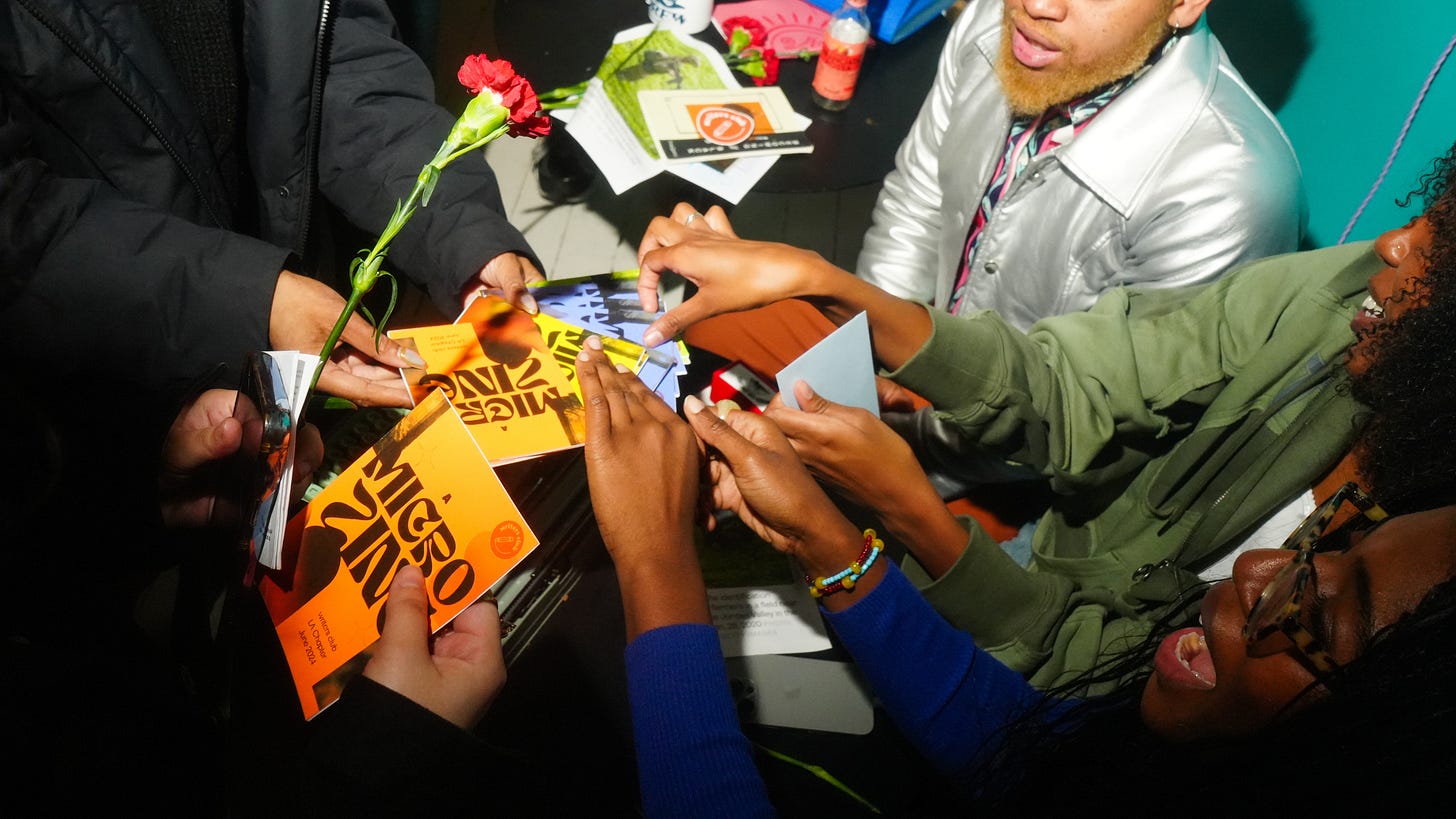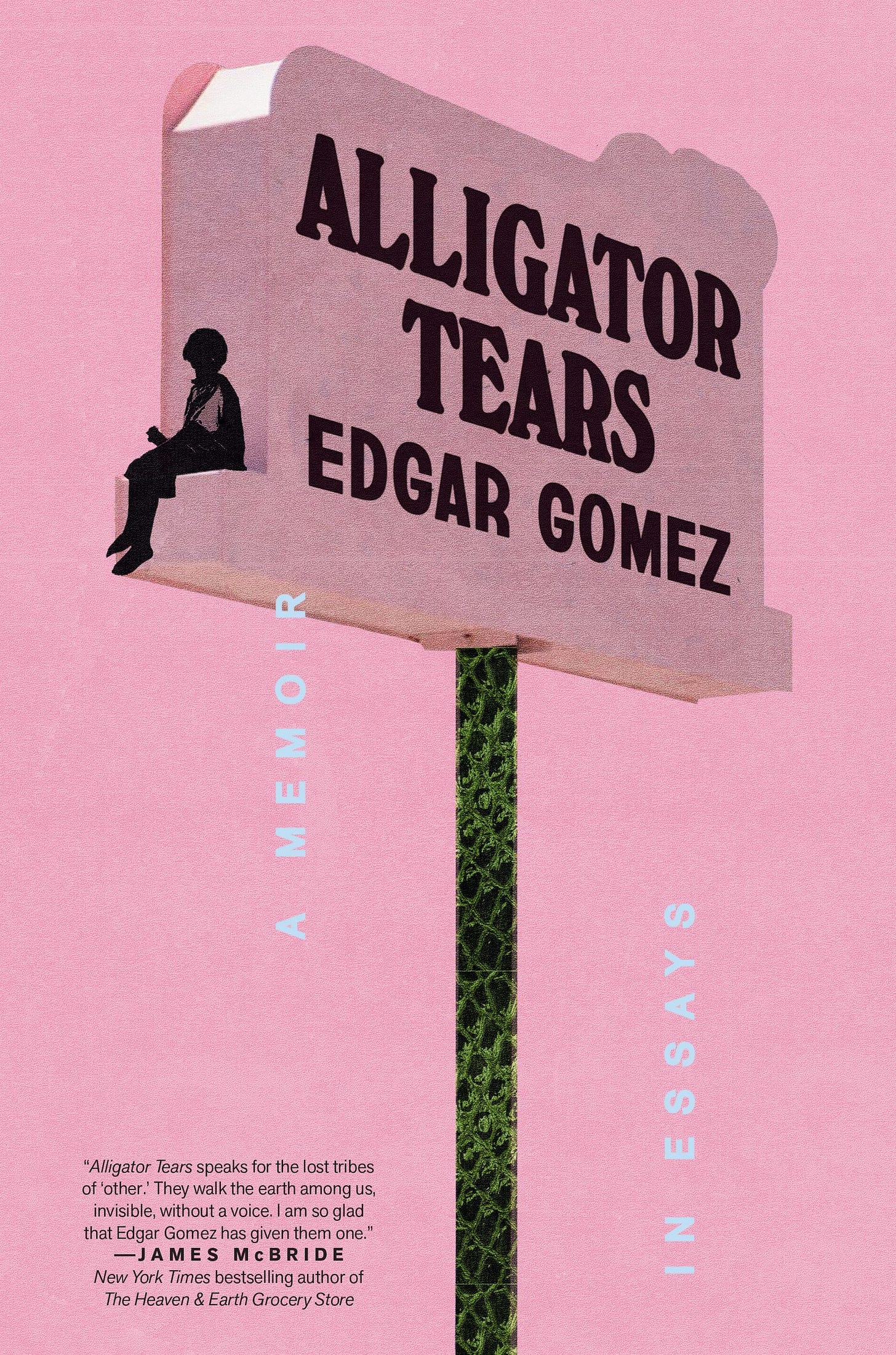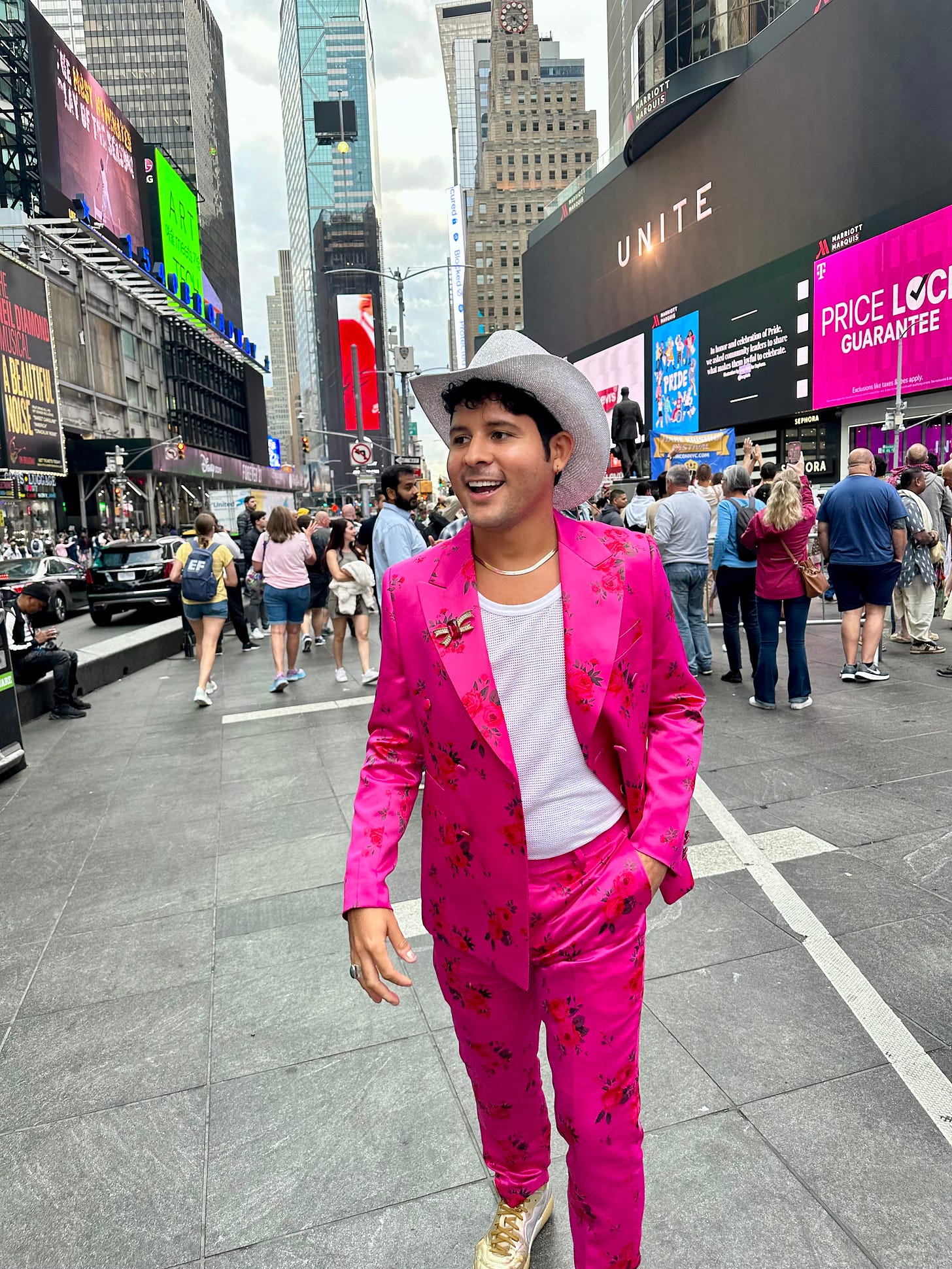Processing: Edgar Gomez on writing and publishing his second book, "Alligator Tears"
"The real shame is that we live in a country with so much abundance, where rich people get wealthier and wealthier off our labor while the rest of the country stays hungry."
✨Internet Cafe is a reader-supported publication. Support our newsletter, which includes Processing, Hot Club News, and more, by becoming a paid subscriber ✨
We are currently supported by 4 paid subscribers <3
What makes a good memoir?
When the writer is telling the truth, even if it doesn’t always make them look good.
Publishing your first book is a great accomplishment, but publishing your second requires a lot more courage, at least we assume. We spoke with Edgar Gomez, who is celebrating his birthday this week about his latest project, ALLIGATOR TEARS, and what it means to publish his second book.
Let’s dive in!
WC: Firstly congrats on your second book, ALLIGATOR TEARS.
How do you feel about putting out your second title? How did the writing and publishing change since your first book?
Edgar: It feels pretty surreal. I’m really proud to have a book out that is unapologetically queer and celebratory and allows me to talk about how much love I have for my community, especially when I think about the political climate we’re living in where queer voices are increasingly being censored and banned across the country.
The biggest thing that's changed since my first book, High-Risk Homosexual, came out is that this time around, I have a larger publisher that can help me reach more people, and while that's great, I also felt an increased amount of pressure when writing it to show my publisher that stories like mine are worth investing in.
Originally, I thought that I needed to write a book that would appeal to everyone so that my publisher could recoup their investment and give opportunities to other queer Latinx writers. Ironically, I hesitated whenever I wanted to use pop culture references or queer and Latinx slang because I worried people wouldn't get it or wouldn't be interested in it.
Eventually, I realized that in my attempt to be “universal,” I was becoming generic, and that the only way to prove to other writers that there was space for us in the publishing industry was by being my most authentic self. Otherwise, what kind of message would I have sent? You can make it, but only if you shrink yourself and hide who you are? Nah. That can’t be right.
WC: You open ALLIGATOR TEARS detailing a gruesome experience in your family in the the essay, “Orlando Royalty.” Why did you choose to start the book with this essay? Did the essay inspire the book or did the book inspire the essay? Chicken or the egg?
Edgar: I wrote the first essay in the book in a flurry of emotions at the beginning of the pandemic. I was frustrated that working class people in my community were being treated as disposable by the government while billion-dollar corporations profited off of their deaths.
There’s this memory from when I was a child that kept haunting me. In the memory I’m 12-years-old, standing frozen at the foot of my mom’s bed while she’s having a stroke, too scared to call an ambulance because we couldn’t afford one. I couldn’t get it out of my head, that memory from forever ago, and so one day I sat down and wrote about it, just to get it out. Once I had it written down, I realized that that was the moment in my life when I felt most ashamed and powerless over being poor.
I decided that I would make that memory the starting point in my book: Here is the moment in my life when I felt the most scared and that my life was out of my control, which is exactly how I felt in the pandemic. My job after that was to figure out how to go from a place of shame to a place of hope.
The book was born from that attempt. I was looking back at all these weird and sometimes dark experiences, and I had to figure out what got me through them: community, luck, delusion, a drag queen who whispered some words of wisdom to me when I was drunk, and in true Pisces fashion, crying in my early twenties.
WC: You write about growing up in poverty and how you turned to reading (and writing) during financial hardship:
[As a kid] books gave me a sense of stability that was missing from my life— as long as I had one with me, it didn’t matter where I was, I could open it up, and there’d always be the same story waiting for me inside, the same people and places, which was more than I could say about the real world …
How did your modest upbringing inspire the stories you wanted to share?
Edgar: In so many ways. Growing up poor meant finding ways to entertain myself for cheap. I had to be resourceful, and make a dollar out of 15 cents, right? As a kid, I was always fantasizing, writing stories, and making dolls out of napkins and giving them names and personalities. In a way, through writing, I’m still doing the same thing.
There’s also a community aspect to my writing. In my family, we were always looking out for one another, and that taught me early on that we were not alone and should look out for one another. I feel the same way about art. When I write, I insist on asking myself, “What good is this story doing? Is it going to make someone laugh, make them feel seen, teach them something?” Books are expensive. People are overworked. If someone is going to offer me their time and attention, I want to make sure they’re getting their money’s worth.
WC: Last year you hosted a memoir writing workshop with us. It was fab! Please do it again. What do you think makes a good memoir?
Edgar: When the writer is telling the truth, even if it doesn’t always make them look good. And personally, I also want to laugh. Don’t get me wrong, not everything has to be funny, but there’s something so special about a book that can hurt your feelings and heal them at the same time.
WC: What do you hope readers of ALLIGATOR TEARS take away from the book?
That it’s okay to ask for help.
I used to feel a lot of shame around needing help, partly because there’s so much stigma around it. Growing up in an immigrant family, we always had to be “tough” and “strong,” almost as if to prove to our relatives back in Nicaragua that we were living the American Dream. And then you hear all the right-wing attacks against anyone on social services. It gets to you. It’s hard not to feel ashamed. I get it. But we’re only human, and we all need help. The real shame is that we live in a country with so much abundance, where rich people get wealthier and wealthier off our labor while the rest of the country stays hungry.
I think many of us are starting to understand that the government doesn’t care about us, and that we’re going to need to save ourselves. If we haven’t already, we’re going to have to learn how to be in community, and part of that is looking out for each other, which also means not being afraid to ask for help when you need it.
You can follow more of Edgar’s work on Substack and Instagram.
Til next time!
writers club 🧡








